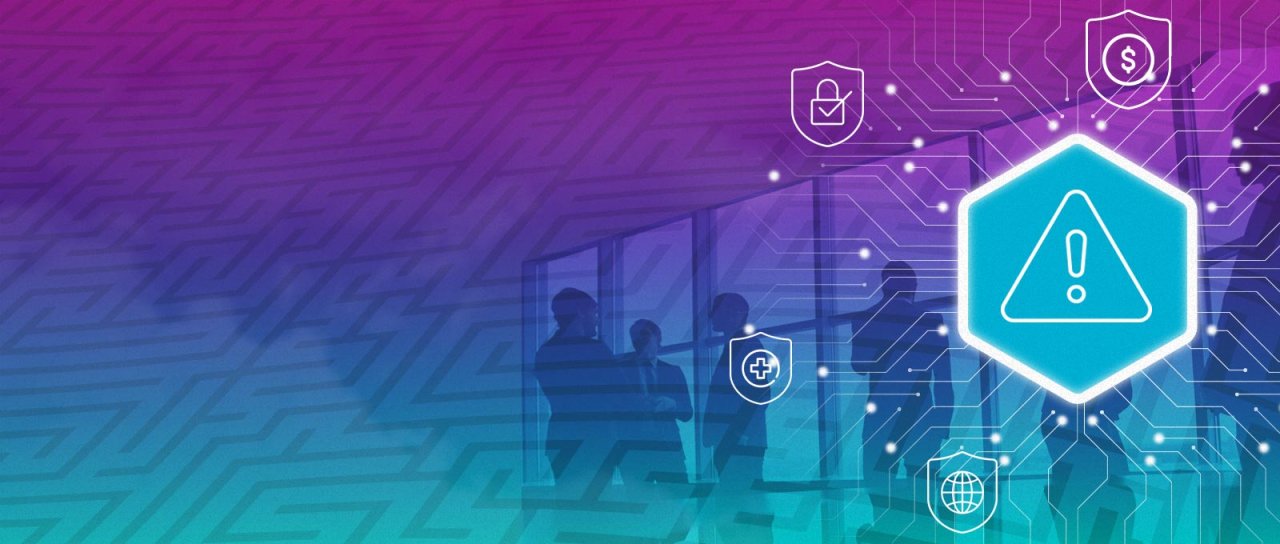Why Cybersecurity Continues to Dominate C-Suite Attention
We recently surveyed more than 1,400 global IT executives on their attitudes toward cybersecurity, and the research made one thing abundantly clear: Despite all of today’s headlines about inflation, supply chain headaches and a shortage of IT talent, cybersecurity is still the 800-pound gorilla in just about every IT conversation.
We recently surveyed more than 1,400 global IT executives on their attitudes toward cybersecurity, and the research made one thing abundantly clear: Despite all of today’s headlines about inflation, supply chain headaches and a shortage of IT talent, cybersecurity is still the 800-pound gorilla in just about every IT conversation.
It’s easy to see why. The consequences of cyberattacks across every industry can be severe. Breaking out the responses by industry, here are the greatest concerns among C-suite leaders:
- Operations downtime: 60% (healthcare: 64%; financial services and retail: 59%; manufacturing and government: 58%)
- Loss of intellectual property/data: 54% (healthcare 64%; manufacturing: 50%; hospitality/travel and financial services: 49%)
- Damage to brand reputation: 49% (hospitality/travel: 50%; financial services: 49%)
- Revenue loss: 38% (manufacturing and government: (39%; financial services: 38%)
The IT leaders we polled, across industries, cited cyberattacks as their C-suite’s number-one business concern, with manufacturing (65%), healthcare (60%), retail and financial services (59%) showing the greatest degree of concern. But this heightened level of concern is clearly not a result of organizations cutting back due to economic pressures or the pandemic. On the contrary, this all comes as organizations continue to invest more and more to protect themselves from threats. Taking just three major industries as examples, 74% of healthcare and financial services respondents reported that their cybersecurity budgets increased over the past three years, while 72% of government IT service professionals said they have had more to spend.
It has also been heartening to see survey respondents report that board visibility for cybersecurity has improved, while collaboration between security teams and the C-suite has become tighter. Seventy-four percent of healthcare, 73% of financial services and government, and 72% of hospitality/travel IT professionals say there has been an increase in board visibility for cybersecurity over the past five years. Moreover, 76% of respondents in financial services, 75% in healthcare and 74% in hospitality/travel cited increased investment in cybersecurity due to better collaboration between their security team and members of the executive team. Everyone realizes that this “IT issue” has the ability to greatly impact every aspect of their business.
Despite all of these positive indicators, why did fewer than half of respondents said they feel fully prepared to respond to cybersecurity attacks and threats (just 44% in government, 41% in financial services and 40% in manufacturing)? It has a lot to do with the changing nature of IT infrastructure. In a multicloud world, where a smaller and smaller percentage of IT resides exclusively within an organization’s four walls, and where companies large and small continue to accelerate their transformation initiatives, cybersecurity has become increasingly complex. Going it alone on your cybersecurity journey is not just inadvisable, but nearly impossible.
The search for solutions to these challenges requires new expertise and, often, reliance on third parties who can help determine the right mix of cloud native application, data, security and automation solutions. Organizations of all sizes, across all industries, need to take an active role in keeping their IT environments safe. As our research shows, there is a broad recognition that we all need to work together to ensure that we are optimally prepared and that increasingly complex infrastructure is protected, especially as bad actors become more sophisticated in how they plan and execute their attacks.

Cybersecurity Annual Research Report 2022
About the Authors

Chief Technical Evangelist
Jeff DeVerter
Jeff has 25 years of experience in IT and technology, and has worked at Rackspace Technology for over 10 years. Jeff is a proven strategic leader who has helped companies like American Express, Ralph Lauren, and Thompson Reuters create and execute against multi-year digital transformation strategies. During his time at Rackspace Technology, Jeff has launched and managed many of the products and services that Rackspace Technology offers, as well as supporting merger and acquisition activities to enhance those offerings. Jeff is the father of two young men and husband to his wife Michelle of 27 years. When not at Rackspace Technology or around San Antonio, you can find Jeff doing land restoration on his ranch in the Texas hill country.
Read more about Jeff DeVerter